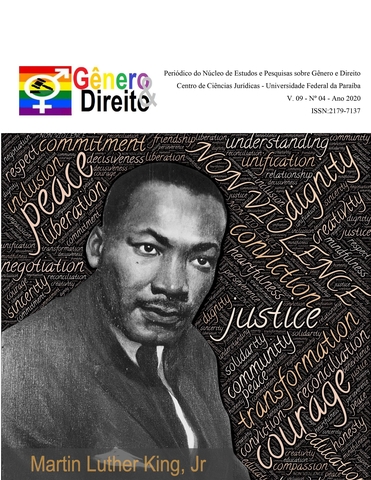EXPERIMENTAL LOGIC IN LEGAL ANALYSIS AND COMMUNICATION:
THEORY AND PRACTICE
Palavras-chave:
legal communication, experimental logic, legal analysis, legal reasoning, pragmatics.Resumo
The concept of experimental logic of John Dewey assumes that creativity and subjectivity are the basis of a complex system of legal institutions. The aim of the article is to discuss this concept, to show its assumptions in relation to legal reasoning and to justify, based on this concept, an experimental approach to solving legal problems. A lawyer who wants to go beyond matrix thinking must develop a certain mental and practical agility. Understanding and applying the experimental logic of John Dewey allows for achieving this agility. Although the reasoning based on the assumptions of formal logic is undoubtedly necessary in the work of a lawyer, any strict application of the syllogistic form is not appropriate, as it does not refer to the actual development of law. The dichotomy between theory and practice is completely illusory, since the solution of a legal problem must take into account all its aspects, not only its formal part.
Downloads
Referências
Bix B. (2004). Jurisprudence: theory and context. London: Sweet & Maxwell, 294.
Dewey J. (1910). How we think. Boston: D.C. Heath and Company.
Dewey J. (1924). Logical method and the law. Cornell Law Review, 10(17), 17-27.
Dewey J. (1938). Logic: the theory of inquiry. New York: Henry Holt and Company.
Dyrda A. (2018). Realizm prawniczy a pozytywizm prawniczy, Avant, 11(1), 47-66. DOI: 10.26913/90102018.0103.0004.
Elkins J. (1996). Thinking like a lawyer: second thoughts. Mercer Law Review, 47, 511-523.
Gilligan C. (1993). In a different voice: psychological theory and women's development. Cambridge: Harvard University Press.
Gilligan C. (2014). Moral injury and the ethic of care: Reframing the Conversation about Differences. Journal of Social Philosophy, 45(1), 89-106.
Gladwell M. (2008). Outliers: the story of success. Boston: Little, Brown and Company.
Holmes OWJr. (1991). The common law. Mineola: Dover Publications.
Krieger S, Neumann R. (2015). Essential lawyering skills. Alphen aanden Rijn: Wolters Kluwer Law & Business.
Levy BH. (1991). Anglo-American philosophy of law: an introduction to its development and outcome. Brunswick and London: Transaction Publishers.
MacCormick N. (1983). On legal decisions and their consequences: from Dewey to Dworkin. New York University Law Review, 58, 239-255.
Mendell M. (1994). Dewey and the logic of legal reasoning. Transactions of the Charles S. Peirce Society, 30(3), 575-635.
Muyumb W. (2014). „All safety is an illusion”: John Dewey, James Baldwin, and the Democratic Practice of Public Critique. In Trained Capacities: John Dewey, Rhetoric, and Democratic Practice. Columbia: The University of South Carolina Press.
Neustadt RE, May ER. (1986). Thinking in time: the uses of history for decision-makers. New York; Free Press.
Osiejewicz J. (2020). Transnational legal communication: towards comprehensible and consistent law. Foundations of Science. DOI: 10.1007/s10699-020-09655-3. https://link.springer.com/article/10.1007/s10699-020-09655-3.
Payton S. (1985). Is thinking like a lawyer enough? University of Michigan Journal of Law Reform, 18, 233-236.
Rand JW. (2003). Understanding why good lawyers go bad: using case studies in teaching cognitive bias in legal decision-making. Clinical Law Review, 9, 751-752.
Rorty R. (1982). Consequences of pragmatism. Minnesota: Univ of Minnesota Press

